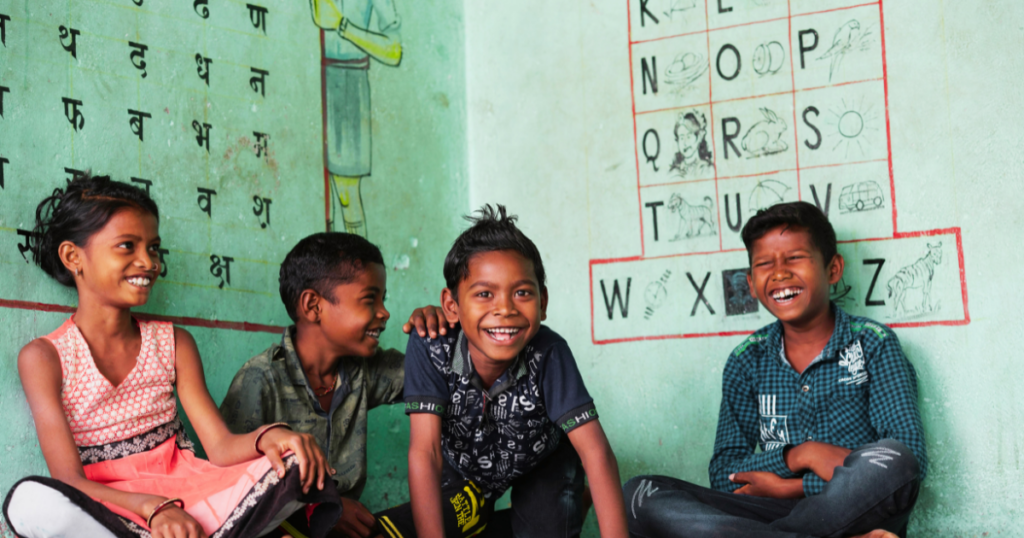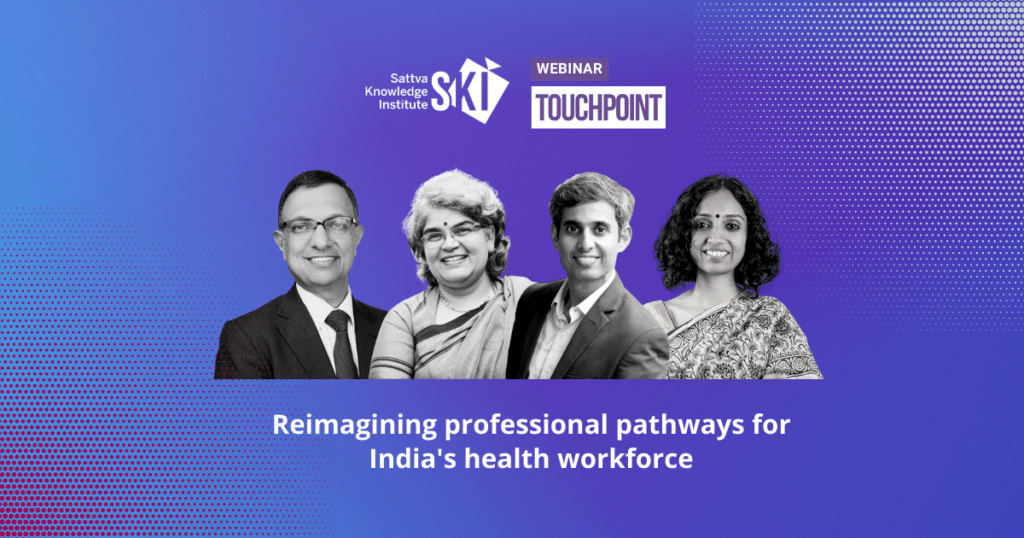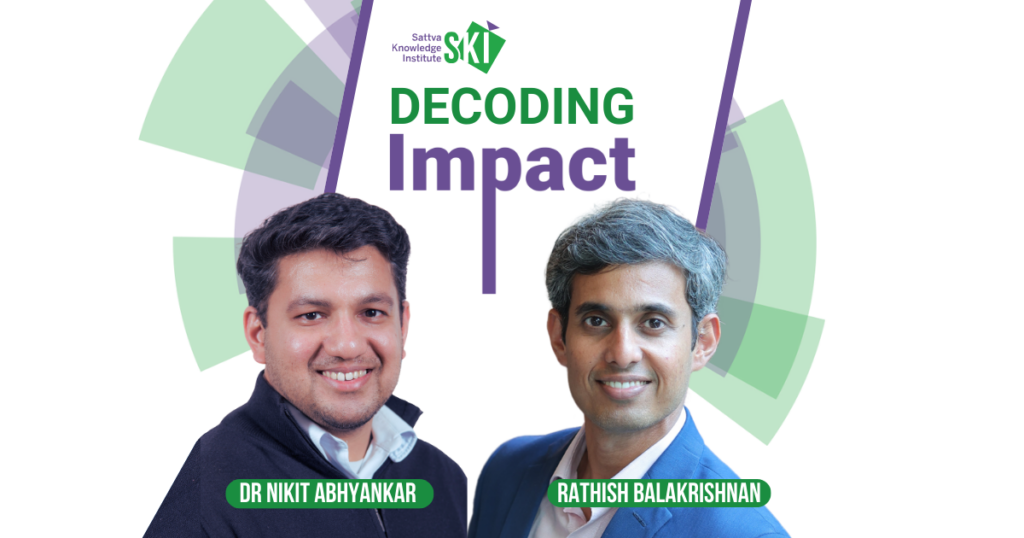In the realm of mental health for children and adolescents in India, there’s an evolving landscape of policy support, though implementation is still in its early stages and data is limited. National policies prioritise mental well-being, while programmatic efforts, including state-level initiatives, vary widely — from State Mental Health Policies to innovative state-led programmes. Despite this diversity, challenges persist in fragmented implementation, lack of evidence, and the need for outcome-focused strategies. Non-profit organisations are also implementing various interventions, collaborating with governments in promising cross-sectoral partnerships. The landscape is seeing a growing momentum in mainstream dialogue, media attention, and philanthropic interest in the space. However, structural and systemic challenges – including stigma, poor health-seeking behaviour, and a shortage of mental health professionals – hinder effective intervention delivery. While it evolves, the mental health sector also faces challenges such as the lack of uniform vocabulary, lack of evidence, and limited collaboration across stakeholder interventions.
The roundtable participants noted that the mental health ecosystem in India is in nascent to emerging stages of maturity. While there is consensus on the importance of the issue and presence of law, policies and programmes in mental health for children and adolescents – characterising an emerging sector – there is a dearth of evidence on solutioning approaches, measuring outcomes, principles, effective practices and context-specific solutions.
The round table discussion centred on a strong consensus to prioritise investments in system-level interventions, acknowledging the critical role of research and evidence as a pathway for effective action in the education sector. The agreed-upon action pathways include the establishment of common metrics, tailored mental health curricula for teachers, student empowerment initiatives, accessible mental health resources through open data platforms, encouragement of positive language, and early intervention strategies. The group emphasised collaboration with various stakeholders, including teachers, parents, students, and mental health professionals, to ensure a comprehensive and inclusive approach. The establishment of common metrics and indices for measuring mental health outcomes in schools was identified as crucial, involving engagement with diverse perspectives and continuous monitoring of short-, medium-, and long-term outcomes. Teachers’ education on mental health issues and the incorporation of evidence-based curricula were deemed essential, along with empowering students through committees, peer support programmes, and awareness campaigns.
The discussion emphasised the creation of open data platforms for sharing mental health resources, tailoring content to diverse demographics, and prioritising affordability and accessibility. Encouraging positive language in schools, correcting terminology, and fostering a supportive environment were highlighted as key elements of comprehensive mental health education. The importance of engaging parents in mental health discussions and providing resources and workshops to support their children’s well-being was underscored.
The key principles for action derived from the discussion emphasised intersectionality, inclusivity, social justice, and holistic, multi-sectoral solutions. The need to consider factors such as gender, race, and socioeconomic status in mental health interventions was stressed, along with strategies addressing socioeconomic and environmental factors. The participants recommended outcome-focused strategies, large-scale collaboration through consortiums, and evidence-based approaches, emphasising adaptable curricula for impactful mental health education in diverse school contexts. Overall, the comprehensive approach outlined in the discussion aimed to create a supportive and inclusive school environment that prioritises the mental well-being of students.
We thank the following experts who contributed their insights, in the lead-up to and during the roundtable discussion.
- Abhijeet Waghmare, Eaton India Foundation
- Abhishek Das, Portfolio Lead, Rohini Nilekani Philanthropies
- Dr. Aline Cossy-Gantner, Chief Development Officer, Fondation Botnar
- Anand Sinha, Country Advisor, David and Lucile Packard Foundation
- Anukriti Roy, Assistant Manager, SBI Foundation
- Dr. Anupama Shetty, Mission Director, Biocon Foundation
- Dr. Chethana Thirthahalli, Lead – Health, HCL Foundation
- Dr. Chetna Duggal, Chairperson, Centre for Human Ecology, Project Director, SIMHA, School of Human Ecology, TISS, Mumbai
- Chhavi Bharadwaj, Manager, Learning and Development, Tech Mahindra Foundation
- Jyothi Ravichandran, Programme Specialist – Mental Health & Psychosocial Support, UNICEF India
- Khushboo Saif, Sr Manager – Programme, The Hans Foundation
- Lavanya Jayaram, Executive Director – South Asia, AVPN
- Natasha Joshi, Associate Director, Rohini Nilekani Philanthropies
- Nita Aggarwal, Programme Manager (India Operations), Porticus
- Parveen Shaikh, VP – Operations, MPower Foundation
- Prachi Gaur, Program Director, Tech Mahindra Foundation
- Rajaram Chavan, Senior Manager (CSR), SBI Foundation
- Dr. Samir Parikh, Consultant Psychiatrist, Chairperson, Fortis National Mental Health Program, Fortis Healthcare
- Sapna Nair, Program Director, Infosys Foundation
- Shabina Bano, Sr Manager – Programme, The Hans Foundation
- Sucharita Kamath, Chapter Head, India, ANDE
- Sonya Fernandes, Chief Program Officer, Ashraya Hasta Trust
- Shrutee Khurana, Director, Infosys Foundation
- Dr. Syed Hubbe Ali, Health Specialist (RMNCHA), UNICEF India
- Dr. Tasneem Raja, Head, Mental Health, Indira Foundation
- Vinoda Kailas, Program Director and Trustee, Pravaha Foundation
- Dr. Vivek Virendra Singh, Health Specialist, UNICEF India
- Yogita Apte, Lead CSR, Persistent Systems
Yashasvi Murali, Anushka Anand, and Sarah Joseph.




